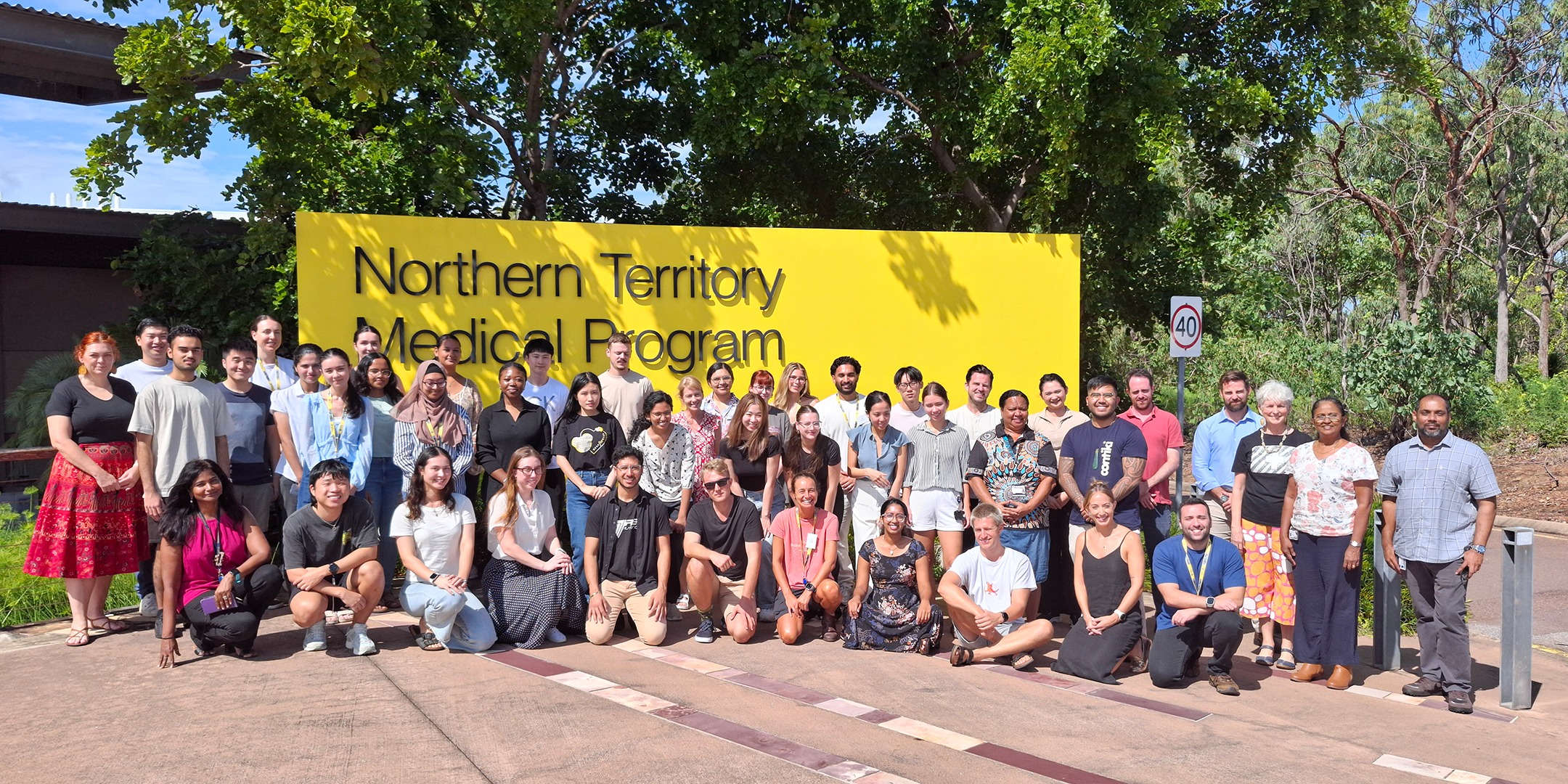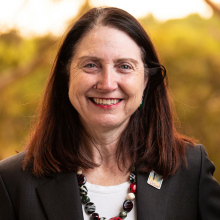
Northern Territory's long-standing local medical program is celebrating its highest intake of medical students this week, welcoming 38 new Northern Territory (NT) resident students and its first international cohort to the program.
Professor Robyn Aitken, Dean of Rural and Remote Health at Flinders University says there are more than 130 Flinders University students in the NT currently studying the Northern Territory Medical Program.

There are also more than 100 medical students undertaking short and long placements facilitated by Flinders University each year. Many of them are subsequently returning to work in the Territory as graduates "We know that the Northern Territory has a significant need for a larger health workforce," says Professor Robyn Aitken.
"There is still much to do in recruiting and training local health care professionals and graduating Indigenous and non-Indigenous doctors who can contribute to improving the health and well-being of all Territorians.
"Our medical program offers a wonderful opportunity for people in the Territory to pursue medical training, learn about the unique challenges of rural and remote health care, and consider a career in an area of health care need.
"We're delighted to be welcoming two students back who deferred in 2024, and three international students.
"Together they make up a total of 42 medical students commencing in the Territory this year - the highest number for Flinders so far.
"The introduction of international students undertaking the medical program entirely in the Northern Territory demonstrates our commitment to boosting the local medical workforce pipeline when Commonwealth Supported places are yet to flow to the Territory," adds Professor Aitken.
The 42 medical students will embark on a four-year course developing comprehensive skills, knowledge and understanding specifically required to serve the diverse medical needs of the Northern Territory.
Throughout their journey, students will gain hands-on experience including rich and innovative clinical placements supported by partner staff in local hospitals and primary health care clinics in Darwin, Nhulunbuy, Katherine, Tennant Creek and Alice Springs.
Preference for the Northern Territory Medical Program is given to Northern Territory and Indigenous applicants, and graduates of the program are committed to spend two years working in the Territory, with many opting to pursue their long-term careers here.
"We pride ourselves on championing diversity and inclusion and have a proven track record in graduating doctors who truly understand the needs of Territory communities," says Associate Professor Emma Kennedy, Northern Territory Medical Program Director.
Associate Professor Kennedy says that the Welcome week for Year 1 medicine students was held from 10-14 February with a focus on preparing new students for the year ahead, providing social connections and providing supports for student wellbeing.
"Students have familiarised themselves with classrooms and laboratories, socialised with staff and experts at joint lunches and participated in social activities hosted by student societies" says Associate Professor Kennedy.
With an emphasis on cultural orientation, students also took part in the Saltwater Welcome to Country ceremony delivered by Elder on Campus Uncle Dr Richard Fejo.

New medical student, long-time Territorian, Ashley Hughes says: "I'm super excited to start studying medicine in Darwin, as staying close to my family was a big factor."
"I also have a lot of friends and work colleagues currently completing their medicine degree, who really helped me make the informed decision to choose Flinders University in Darwin."
Flinders University remains deeply committed to the NT, with more than 27 years contributing to the health of Territorians, developing and delivering health education and research expertise.
Since commencing in 2011, 229 Flinders University medical students have graduated in the NT with over half of these graduates continuing to live and work in the Territory after completing their return of service.






